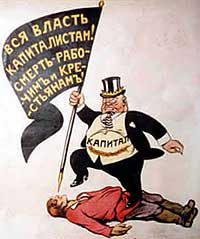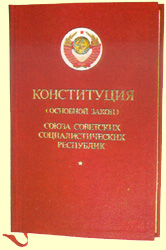In a suddenly sober move the Russian Federation abandoned its efforts of making the question of relocation of the Bronze Soldier monument (see Wikipedia on the
subject) an international issue. This might become the last in a series of attempts to raise the particular issue in various international organizations such as the EU and PACE.
This development came within the process of adapting a UN GA resolution directed against the phenomenon of the modern-day nazism, racism and xenophobia. Indeed, the United Nation has in recent years been working on a resolution condemning modern nazism, which in practice proved to be difficult. The difficulty lies in the fact that different nations perceive particular notion differently. In various places around the World we can discover in newspapers such names and brands as "American Oil Nazis", "Islamic Fascists" and many others. Such strong is today the image of the WW2 Hitler that a party in a heated debate sooner or later gets called "nazi" by the opponents. There are in fact real neo-nazis and xenophobiacs as well, that is those who indeed support Hitler or indiscriminately hate people just because they are different. So the envisaged UN resolution was initially intended to condemn such groups. Its adoption proved difficult, because each government has own political agenda and many of them have no problem of fixing the intended anti-racist resolution in the suitable direction so that they could have a new pretext for doing what they really want. Which, in the failed Russian case, was to hit at Estonia for the monument relocation.
The
United Nations' General Assembly page displays background information to the recent UN General Assembly votes, including the background of the draft resolution condemning "
certain practices that contribute to fuelling contemporary forms of racism, racial discrimination, xenophobia and related intolerance".
As appears in the text on the UN page at some point the Russian Federation inserted into the text of the draft a reference to the relocation of Tallinn's Soviet monument. However, facing perspective of failure of the resolution if the reference remained, they withdrew this amendment at the last minute.
According to the UN document the Russian Ambassador made following statement:
The representative of the Russian Federation said the text was a timely one...
(Here I skip the meaningless part, which is accessible on the website, and point straight to the important one):
He then made an oral amendment to the text, removing the words “or transfer monuments” from operative paragraph 3.
Clearly, the "operative paragraph 3" was nothing less than a reference to the events in Tallinn, where the monument known as Bronze Soldier was relocated on the 27th of April, 2007, causing a head-on clash between Russia and Estonia.
But why did the Russians remove the reference to the "transfer of monuments"? Have they softened on Estonia? The UN text gives following clue:
Explaining his vote, the representative of Switzerland said his delegation recognized the value of the last-minute change that had been made to operative paragraph 3. It had allowed Switzerland to continue to abstain on the resolution as a whole.
Thus, Switzerland abstained from the resolution (instead of rejecting it altogether), along with other 52 countries comprising the members and the candidate countries of the EU and NATO, as well as neutral developed and non-militarist countries such as Switzerland, Iceland and Japana.
Here the EU was leading the way, as representative of Portugal at the UN was not only speaking on behalf of the 27-strong block, but even wider group of pro-EU European countries. According to the EU's
statement at the time of the development of the draft in 2005 this group of countries consisted of, in addition to EU itself, Bulgaria, Romania, Turkey, Croatia, Albania, Bosnia and Herzegovina, the Former Yugoslav Republic of Macedonia, Serbia and Montenegro, Ukraine and the Republic of Macedonia. In 2007, the EU group further grew in numbers. However, with the massive help of African, Latin American and Middle Eastern countries, the resolution - after removal of the reference to the "transfer of monuments" - was adopted.
Votes:
Abstained:
Albania, Andorra, Australia, Austria, Belgium, Bosnia and Herzegovina, Bulgaria, Canada, Croatia, Cyprus, Czech Republic, Denmark, Estonia, Fiji, Finland, France, Georgia, Germany, Greece, Hungary, Iceland, Ireland, Italy, Japan, Latvia, Liechtenstein, Lithuania, Luxembourg, Malta, Moldova, Monaco, Montenegro, Netherlands, New Zealand, Norway, Palau, Papua New Guinea, Poland, Portugal, Republic of Korea, Romania, Samoa, San Marino, Serbia, Slovakia, Slovenia, Spain, Sweden, Switzerland, The former Yugoslav Republic of Macedonia, Ukraine, United Kingdom.
Supported:
Algeria, Angola, Antigua and Barbuda, Argentina, Armenia, Azerbaijan, Bahamas, Bahrain, Bangladesh, Barbados, Belarus, Belize, Benin, Bhutan, Bolivia, Botswana, Brazil, Brunei Darussalam, Burkina Faso, Cambodia, Cameroon, Cape Verde, Chile, China, Colombia, Comoros, Congo, Costa Rica, Côte d’Ivoire, Cuba, Democratic People’s Republic of Korea, Democratic Republic of the Congo, Djibouti, Dominica, Dominican Republic, Ecuador, Egypt, El Salvador, Equatorial Guinea, Eritrea, Ethiopia, Ghana, Grenada, Guatemala, Guinea, Guyana, Haiti, Honduras, India, Indonesia, Iran, Iraq, Israel, Jamaica, Jordan, Kazakhstan, Kenya, Kuwait, Kyrgyzstan, Lao People’s Democratic Republic, Lebanon, Lesotho, Liberia, Libya, Madagascar, Malawi, Malaysia, Maldives, Mali, Mauritania, Mauritius, Mexico, Mongolia, Morocco, Mozambique, Myanmar, Namibia, Nepal, Nicaragua, Niger, Nigeria, Oman, Pakistan, Panama, Paraguay, Peru, Philippines, Qatar, Russian Federation, Rwanda, Saint Lucia, Saint Vincent and the Grenadines, Saudi Arabia, Senegal, Sierra Leone, Singapore, Solomon Islands, South Africa, Sri Lanka, Sudan, Suriname, Swaziland, Syria, Tajikistan, Thailand, Timor-Leste, Togo, Trinidad and Tobago, Tunisia, Turkey, Turkmenistan, Uganda, United Arab Emirates, United Republic of Tanzania, Uruguay, Uzbekistan, Vanuatu, Venezuela, Viet Nam, Yemen, Zambia, Zimbabwe.
Against:
The United States
The United States explained their negative vote in following terms:
The representative of the United States said his delegation had called for a vote, and that it would vote against the draft. No country abhorred hatred and Nazism more than the United States, but the draft resolution failed to distinguish between actions and statements that, while offensive, might be protected by freedom of expression, on the one hand, and actions and statements that incited violence, which should be prohibited, on the other. Curtailing expression was not a viable means of eliminating racism and related intolerance; only through a free flow of ideas, unfettered discussion and vigorous debate –- cornerstones of democracy -- could deplorable ideologies be challenged.
A Russian democratic blogger (link in Russian language) gives following background to the real meaning of the resolution, which at the UN was chiefly defended by the Russian Federation and Uzbekistan: In essence, the Russian proposal constitutes an attempt to create an export version of Putin's law on "extremism" and it calls upon foreign States to enter into their legislation norms, which would enact persecution of citizens for expressing opinions thus giving international blessing to the practice of prohibition of freedom of political speech enforced in the RF under pretext of "fight against extremism".

"Estonians and dogs are not allowed" (Wikipedia) a sign at the entrance of a restaurant in a provincial city in Russia. The place to start enforcing UN anti-racism legislation?
The UN's General Assembly resolutions are not binding. It is interesting that in the particular vote Israel have voted together with the countries such as Syria, Iran and North Korea against the USA.





















